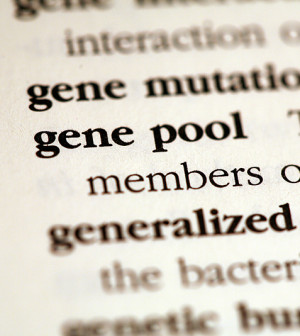- When in Life Are Folks Most Lonely?
- Staying Fit Boosts Kids’ Mental Health
- USDA Testing Beef Amid Bird Flu Outbreak in Dairy Cows
- Living Healthy Counters Effects of ‘Life-Shortening’ Genes
- Another Teen Vaping Danger: Toxic Lead, Uranium
- Man Nearly Died From Fentanyl-Linked Brain Disease
- 1 in 4 U.S. Women Will Have an Abortion in Their Lifetime
- Painless Skin Patch Could Deliver Vaccines to Kids
- Florida Dolphin Found Infected With Bird Flu
- 1 in 20 ER Visits Involve Homeless People
Gene Therapy Shows Early Potential for Rare Immune System Disorder

Gene therapy might restore immunity in children and young adults with a rare inherited immune system disorder called X-linked severe combined immunodeficiency, researchers report in a small study.
The condition, which primarily affects males, is caused by mutations in the IL2RG gene that prevent normal development and function of infection-fighting immune cells. Patients are at high risk for life-threatening infections, according to background information with the study.
This early study was designed to test the safety and effectiveness of the procedure. Much more work is needed before the treatment could be approved for patients.
Currently, the most effective treatment is a transplant of blood-forming stem cells from a genetically matched sibling. Patients without a matched sibling often receive transplants from a parent, but this only partially restores their immunity, researchers from the U.S. National Institute of Allergy and Infectious Diseases explained.
The new study included five patients, aged 7 to 24, with worsening immune systems despite one or more previous stem cell transplants from a parent. Stem cells were removed from the patients’ bone marrow, given a normal IL2RG gene, and then placed back in the patients after a low dose of chemotherapy. The chemo was meant to help the stem cells establish themselves and start producing new blood cells.
Substantial immune system improvements were seen in the first two patients to receive the gene therapy. One of them continues to improve three years after treatment. However, the second patient died of pre-existing, infection-related lung damage two years after treatment.
This study shows the importance of early treatment, before there is irreversible organ damage, the researchers said.
The other three patients underwent the gene therapy three to six months ago. They’re starting to show signs of improved immune function, according to the study authors.
The findings were scheduled to be presented Saturday at the American Society of Hematology’s annual meeting in Orlando, Fla., by principal investigator Dr. Suk See De Ravin. Data and conclusions presented at meetings are usually considered preliminary until published in a peer-reviewed medical journal.
More information
The U.S. National Library of Medicine has more about X-linked severe combined immunodeficiency.
Source: HealthDay
Copyright © 2024 HealthDay. All rights reserved.










